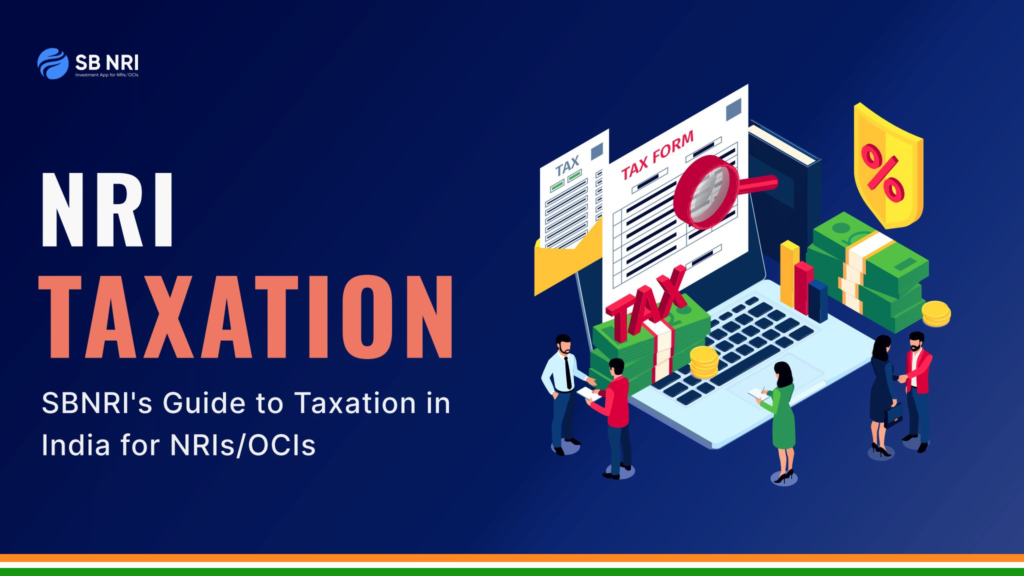
The last date or due date to fill your Income Tax Return(ITR) in India is July 31st for individuals, Non-Resident Indian(NRI), Overseas Citizen of India(OCI), and HUFs. But if you have missed filing your ITR, you need not worry as the Income Tax Department allows you to file a belated return still. Read all about what to do if you missed out on filing your ITR, belated returns, the penalty for late filing of ITR, and how to file a belated return in this blog.
Click on the button below to file your belated ITR in a hassle-free way.
What to Do When You Miss Your ITR Filing Due Date
If you’ve missed the due date for filing your ITR, the first thing to remember is that you still have the option to file your return. The Income Tax Act provides provisions to file a belated return, which can help you avoid severe penalties and legal repercussions.
Also read: ITR Filing for NRIs AY 2024-25: Step-by-Step ITR Filing Process
What is a Belated Return?
When a person files their income tax return after the first deadline, it is known as a belated return. The deadline for most people is July 31st of each year. They have until December 31st of the same year to file their return if they miss this deadline. Their first deadline is September 30th, but they also have until December 31st to file late if their income requires an audit. If you file your taxes after these dates but before the end of the fiscal year, it’s known as a “belated return.” It is submitted in accordance with the Income Tax Act section 139(4). Penalties and further interest on the taxes due may result from filing after the deadline. To prevent extra fees, it is therefore important to file your return on time.
Also read: 5 Tips for NRIs Filing Income Tax Returns in India
What are the charges for Belated ITR return?
Filing a belated income tax return can result in penalties and disadvantages. Here is a list of penalties and late fees you need to pay:
- Interest Penalties: Interest under Sections 234A, 234B, and 234C will be charged, increasing your tax liability.
- Late Fees: A late fee under Section 234F will be charged :
- No fee will be charged if your gross total income is up to Rs. 2.5 lakh.
- Rs. 1,000 if your income is between Rs. 2.5 lakh-Rs. 5 lakh.
- Rs. 5,000 if your income is more than Rs. 5 lakh.
- Limitations on Loss Carry Forward: You are not allowed to use investment or company losses as a way of reducing earnings in years to come. Losses from real estate, on the other hand, are not taxed and can be carried forward even in cases of late returns.
- Deductions/Exemptions Disallowed: Certain tax benefits under Sections 10A, 10B, 80-IA, 80-IB, 80-IC, 80-ID, and 80-IE are only available if the return is paid on time. Filing late means losing these benefits, which could increase your tax burden.
Submitting a late return can result in interest and late fees, prevent you from claiming certain allowances and expenses, and limit how much of your losses you can carry over, all of which might raise your overall tax burden.
Also read: Can NRIs file ITR 1 in India? Types of ITR forms for NRIs
How to file a Belated Return? Step-by-Step Guide
Here’s how you can file a belated return in a step-by-step guide:
Step 1: Log into the Income Tax e-Filing Portal:
- Visit the Income Tax Department’s e-filing portal and log in using your credentials.
Step 2: Select the Appropriate ITR Form:
- Choose the correct ITR form applicable to your income sources.
Step 3: Fill in the Details:
- Enter all required details accurately, including income, deductions, and tax payments.
Step 4: Calculate and Pay Late Filing Fees:
- You’ll be liable to pay a late filing fee under Section 234F:
- ₹5,000 if the return is filed after the due date but before December 31 of the assessment year.
- ₹10,000 if filed after December 31.
- If your total income does not exceed ₹5 lakh, the maximum penalty will be ₹1,000.
Step 5: Pay Any Outstanding Taxes:
- If you have any unpaid taxes, calculate the interest on the unpaid amount under Section 234A (1% per month) and make the payment.
Step 6: Submit and Verify:
- Submit the return and verify it using any of the available methods (Aadhaar OTP, EVC, or by sending a signed ITR-V to the CPC).
Also read: How can NRIs e-Verify IT Return from Abroad?
NRI Income Tax Slab Rates for AY 2024-25 (FY 2023-24) – New Tax Regime & Old Tax Regime
NRIs can choose between the existing tax regime and the new tax regime with a lower rate of taxation (Under Section 115BAC of the Income Tax Act). Given below is the table for the latest Income Tax Slabs rates for the FY 2023-24(AY 2024-25):
| Income Tax Slab | Old Regime Slab Rates for FY 23-24 (AY 24-25) |
|---|---|
| Up to Rs. 2.50 lakh | Nil |
| Rs. 2,50,000 -Rs. 5,00,000 | 5% |
| Above Rs. 5 lakh to Rs. 6 lakh | Rs. 12,500 + 20% |
| Above Rs. 6 lakh to Rs. 7.50 lakh | Rs. 12,500 + 20% |
| Rs. 7.50,000 to Rs. 9,00,000 | Rs. 12,500 + 20% |
| Rs. 9,00,000 to Rs. 10,00,000 | Rs. 12,500 + 20% |
| Rs. 10,00,000-Rs. 12,00,000 | Rs. 1,12,500 + 30% |
| Rs. 12,00,000-Rs. 12,50,000 | Rs. 1,12,500 + 30% |
| Rs. 12,50,000-Rs. 15,00,000 | Rs. 1,12,500 + 30% |
| Above Rs. 15,00,000 | Rs. 1,12,500 + 30% |
| Income Tax Slab | New Regime Slab Rates for FY 23-24 (AY 24-25) |
|---|---|
| Up to Rs. 3 lakh | Nil |
| Rs. 3,00,000 -Rs. 6,00,000 | 5% (Rebate u/s 87A available) |
| Rs. 6,00,001 lakh to Rs. 9,00,000 | 10% (Rebate u/s 87A available for taxable income up to 7 lacs) |
| Rs. 9,00,001 to Rs. 12,00,000 | 15% |
| Rs. 12,00,001 to Rs. 15,00,000 | 20% |
| Above Rs 15,00,000 | 30% |
Note:
- Income tax exemption limit for NRI taxpayers is up to Rs. 2,50,000.
- NRIs opting for the new tax regime with lower rates will not be eligible for certain exemptions and deductions (like 80C, 80D, 80TTB, HRA).
- If they continue to pay taxes under the existing tax regime, NRIs can avail rebate and exemptions.
- NRIs can avail the new tax regime in India but they can’t claim the rebate on full tax for income up to Rs. 7 lakh. Only residents can claim the rebate on it.
Also read: How long does it take for Income Tax Refund?
Wrapping Up
Filing a belated return helps you stay compliant with tax regulations and avoid severe penalties. While it comes with certain disadvantages, such as losing the benefit of carrying forward losses and deductions under specific sections, it’s far better than not filing at all.
Also read: Types of ITR forms for NRIs
Calculate your TDS Refund with SBNRI’s TDS Refund Calculator
A TDS refund is the process of reclaiming the excess tax deducted at source by the payer if the actual tax liability of the taxpayer is lower than the TDS deducted. This situation typically arises when the income tax calculated on the total income is less than the TDS already deducted. To claim a TDS refund, taxpayers need to file an income tax return (ITR). The Income Tax Department processes the ITR and verifies the details. If the tax department finds that the TDS paid is more than the actual tax liability, the excess amount is refunded to the taxpayer.
You can easily find out how much tax refund you can get by calculating your TDS Refund from this TDS Refund Calculator.
Access SBNRI’s Exclusive NRI Taxation Guide

NRIs and OCIs can now access SBNRI’s exclusive NRI Taxation Guide covering in-depth information about DTAA, Gift Tax, Rental Income Tax, ITR Filing, Types of ITR Forms for NRIs, Capital Gain Tax, Income Tax, and more. The report will help you understand India taxation on mutual funds, other asset classes and how to comply with the regulations.
Access NRI Taxation Guide here
Looking for NRI ITR Filing? Connect with SBNRI NRI Tax Expert CA Today!
At SBNRI, we have simplified ITR filing for NRIs/OCIs through a smooth digital journey. Be it Basic Filing, Advanced Filing (includes Capital Gain, etc.), or Premium Filing (Foreign Income), we can help you assess the right computation and lower your tax liability.
“We’ve helped over 500+ NRIs/OCIs file ITR returns and more than 25,000+ across other taxation services last financial year and we’d love to help you out too”
You can download SBNRI App or connect with NRI Tax Expert team directly via the button below.
FAQs
Will the ITR Deadline Be Extended?
Due to many technical and procedural issues, there is increasing demand from taxpayers and tax professionals to extend the ITR filing deadline. However, the tax department has not yet indicated that the deadline will be extended beyond July 31.
What happens if I fill ITR 1 instead of ITR 2?
If you choose the wrong ITR form, the filed return will be treated as defective and you will need to file a revised ITR using the correct form.
What is the penalty for not filing an ITR within the due date?
If you file your Income Tax Return (ITR) late, you will have to pay a penalty. The maximum penalty is Rs 5,000. This penalty applies if you file your ITR after the due date of 31st July 2024 but before 31st December 2024.
Who is eligible for ITR-1?
ITR 1 Form is filed by:
- Taxpayers.
- Individuals who are a Resident with a total Income of up to INR 50 lakhs when the Income is from Salaries.
- One House Property
- Other Sources; Interest, dividend, etc.
- Agricultural Income up to INR 5 thousand.
Can I file an ITR after 31 December?
No, the due date for filing the Income Tax Return (ITR) for the financial year 2023-24 (assessment year 2024-25) is July 31, 2024. If you miss this deadline, you can still file a belated or revised return by December 31, 2024.
Who is not eligible to fill ITR-2:
- Any individual or HUF having income from business or profession
- Individuals who are eligible to fill out the ITR-1 form (Sahaj)
Can a salaried person file ITR 1?
ITR-1 may be filed by someone who earns money from a job, a home, or other outlets. An NRI is unable to file an ITR-1 and ITRs may be filed using Form 16 by salaried taxpayers.
What is ITR-3?
The ITR-3 is applicable for individuals who have income from profits and gains from business or any profession. You can call it a master Form, as this is the one form where an individual can report all the possible incomes.
How can I avoid notice of income tax department?
It is advised that you should file your returns and make sure that the details provided to the IT department are correct. Also make sure that if you perform any financial transactions in India that need to be reported, do file a return to avoid any notices.



